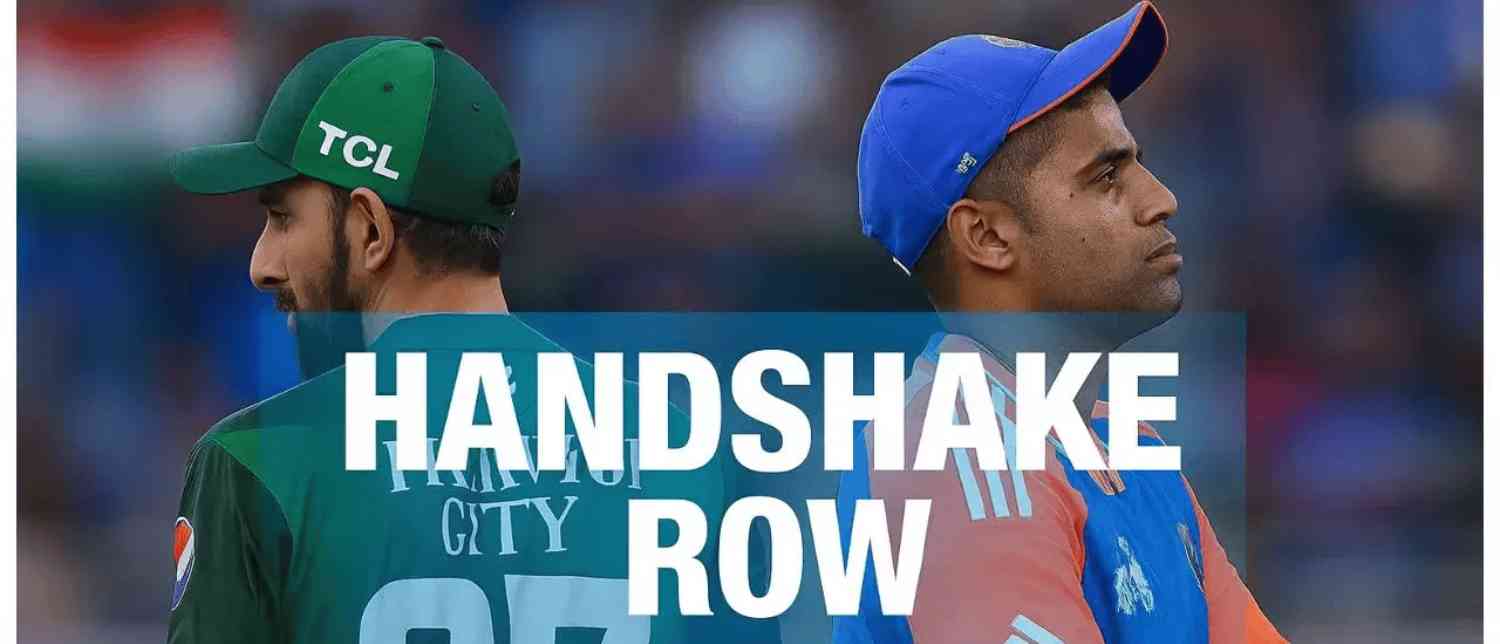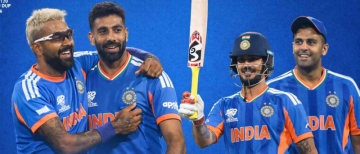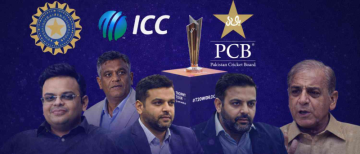The Asia Cup 2025 has witnessed its share of thrilling contests, but the spotlight has shifted dramatically off the field. The International Cricket Council (ICC) is reportedly considering disciplinary action against the Pakistan Cricket Board (PCB) after a string of controversies surrounding their clash with the UAE. The matter stems from Pakistan’s protest against the ICC’s refusal to remove match referee Andy Pycroft following the infamous “no-handshake” incident during the India-Pakistan match.
Sources confirm that the ICC has accused the PCB of misconduct and multiple violations of the Players and Match Officials Area (PMOA) protocols — a serious breach of the governing body’s tournament rules.
ICC Sends Strong Warning Email to PCB
According to a report by PTI, the ICC has already communicated its displeasure directly to the PCB. In a sternly worded email, ICC Chief Executive Sanjog Gupta highlighted repeated breaches.
“The ICC CEO Sanjog Gupta has written to the PCB stating that the board has been guilty of repeated PMOA violations on match day. PCB is in receipt of the email,”
a tournament source revealed.
This came after the PCB allowed its media manager, Naeem Gillani, to record a video of Pycroft, head coach Mike Hesson, and captain Salman Ali Agha before the toss — a move expressly prohibited under ICC rules.
PCB’s Protest and the Delayed UAE Match
The controversy deepened when the Pakistan team initially refused to leave their hotel before their crucial match against the United Arab Emirates (UAE) in Dubai on September 17. The players delayed proceedings by a full hour, standing by their board’s protest against Pycroft.
The PCB alleged that Pycroft was responsible for the controversial incident during the toss against India. They claimed that Pycroft prohibited skipper Salman Ali Agha from shaking hands with Indian captain Suryakumar Yadav.
However, Suryakumar clarified that India’s decision not to exchange pleasantries was a gesture of solidarity with the victims of the Pahalgam terror attack, which killed 26 tourists on April 22.
To ease tensions, the ICC agreed to allow Pycroft to meet with Pakistan’s captain and manager before the UAE match. The aim, according to officials, was:
“To eradicate any regrettable misunderstanding or miscommunication which may have arisen at the time of the toss (of the India match).”
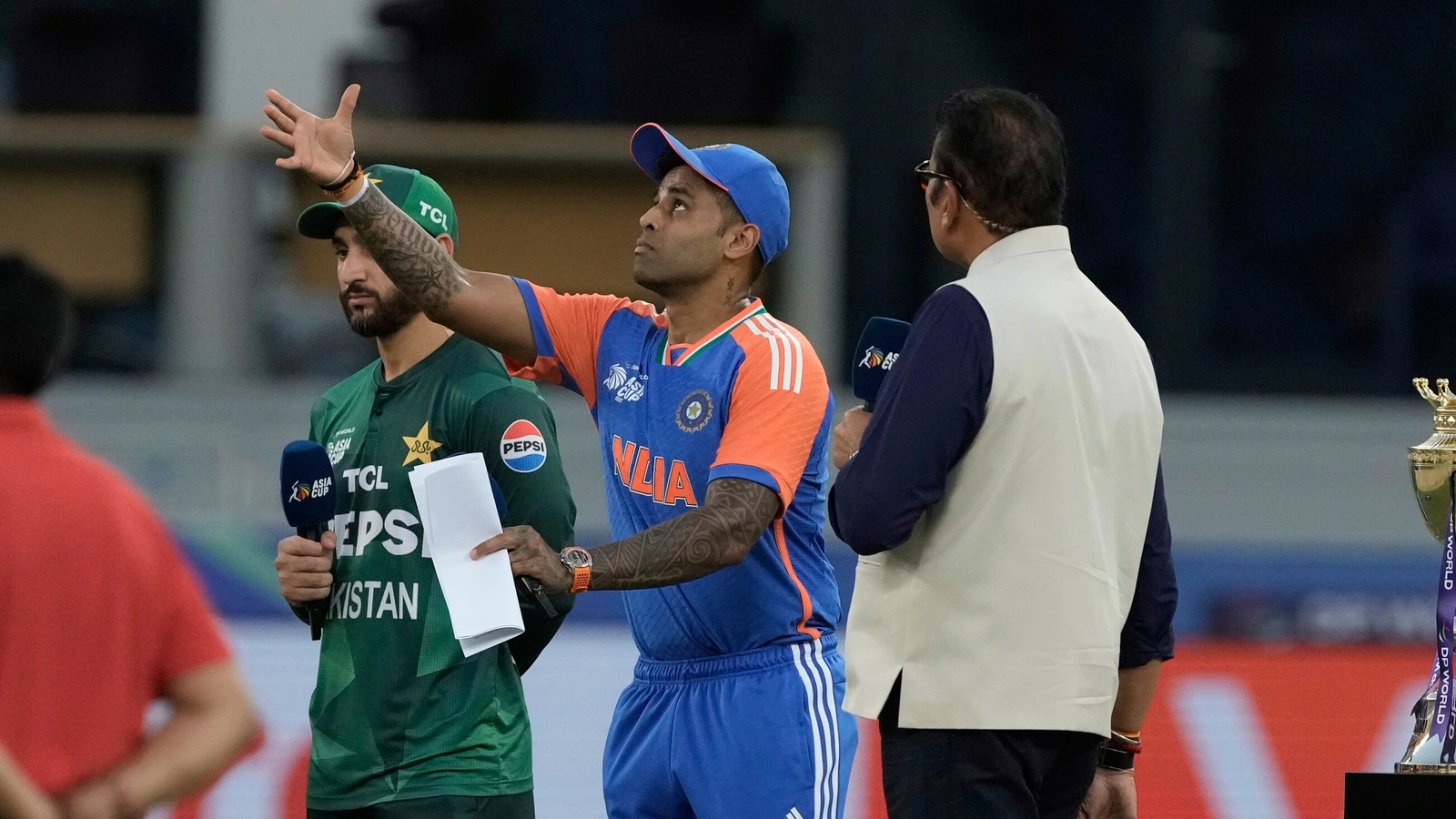
Media Manager’s Entry Sparks Fresh Dispute
Despite ICC’s guidelines, the PCB insisted that their media manager, Naeem Gillani, be part of the pre-toss meeting. When ICC’s Anti-Corruption Manager denied him entry due to his attempt to carry a mobile phone inside the PMOA, the PCB threatened to withdraw from the match altogether.
Eventually, the ICC permitted Naeem’s presence under protest, but he went a step further by filming the exchange, albeit without audio. This was another breach of PMOA regulations.
An ICC source remarked:
“The ICC, in order to preserve the interest of the sport, the tournament and the stakeholders involved, accepted PCB's asks although this demonstrated a complete disregard for the sanctity of the PMOA, where the meeting took place.”
Video Leak on Social Media
Shortly after, the PCB posted a muted video clip of the meeting on social media platforms. The footage showed Pycroft in discussion with Salman Ali Agha, manager Naved Akram Cheema, and coach Mike Hesson. The clip fueled speculation about the nature of the conversation.
Adding fuel to the fire, the PCB issued a press release claiming that Pycroft had “apologised” to the Pakistan camp. However, the ICC strongly contested this, clarifying that Pycroft had only expressed regret over a miscommunication and had not issued an apology.
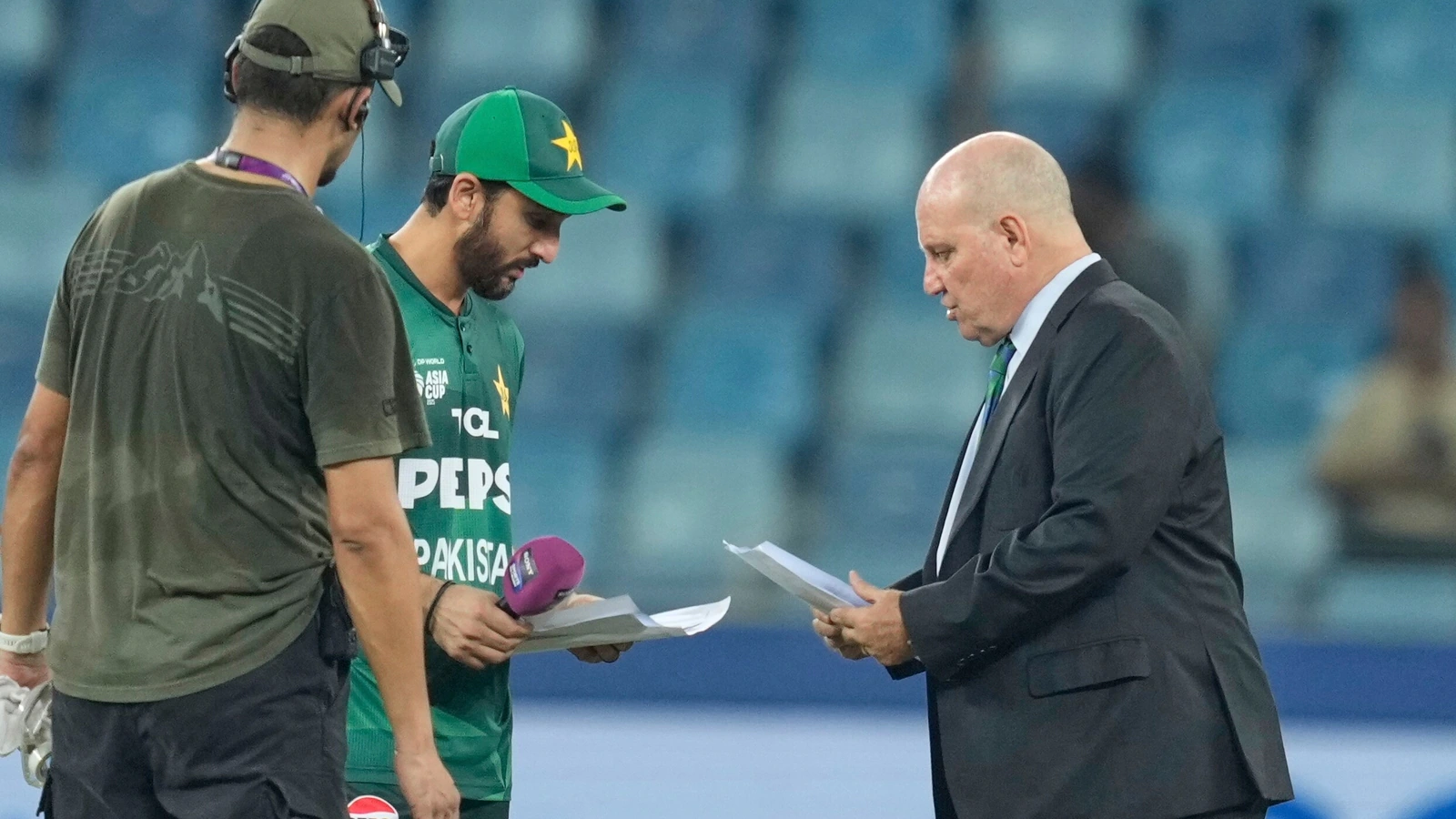
PCB’s High-Level Meeting and Threat of Withdrawal
Behind the scenes, the PCB escalated its stance. A high-level meeting was convened that included current PCB chairman Mohsin Naqvi (also head of the Asian Cricket Council), along with former chairmen Najam Sethi and Ramiz Raja.
During this meeting, Pakistan even considered withdrawing from the Asia Cup altogether if their demands were not met. Eventually, the players were cleared to participate, and Pakistan went on to defeat the UAE, securing their place in the Super 4s.
At a press conference later, Mohsin Naqvi doubled down, insisting that Pycroft had indeed apologised, urging that “sports should not be mixed with politics.” Meanwhile, Ramiz Raja took an even harsher stance, branding Pycroft as “India’s fixer.”
Timeline of the No-Handshake Saga
To understand the full scope of the row, here’s a detailed timeline of the events:
-
September 14: India captain Suryakumar Yadav and his team decline to shake hands with Pakistan players after a seven-wicket victory in Dubai.
-
September 14: Pakistan skipper Salman Ali Agha skips the post-match presentation, while coach Mike Hesson expresses anger at India’s refusal to follow the custom.
-
September 15: PCB files a complaint against Pycroft, accusing him of siding with India and demands his immediate removal.
-
September 16: ICC rejects PCB’s demand. Pakistan cancels its pre-match media conference but continues with practice sessions. PCB sends another letter reiterating their demand to replace Pycroft.
-
September 17: Pakistan team refuses to leave the hotel, delaying their game against the UAE by an hour.
-
September 17: PCB releases a muted video clip claiming Pycroft apologised.
-
September 17: PCB leadership, including Naqvi, Sethi, and Raja, holds a press conference in Lahore, reiterating accusations.
-
September 17: Pakistan eventually plays against UAE, winning by 41 runs and progressing to the Super 4s.
-
September 18: ICC CEO Sanjog Gupta sends a scathing email to the PCB over PMOA violations and misuse of the video recording.
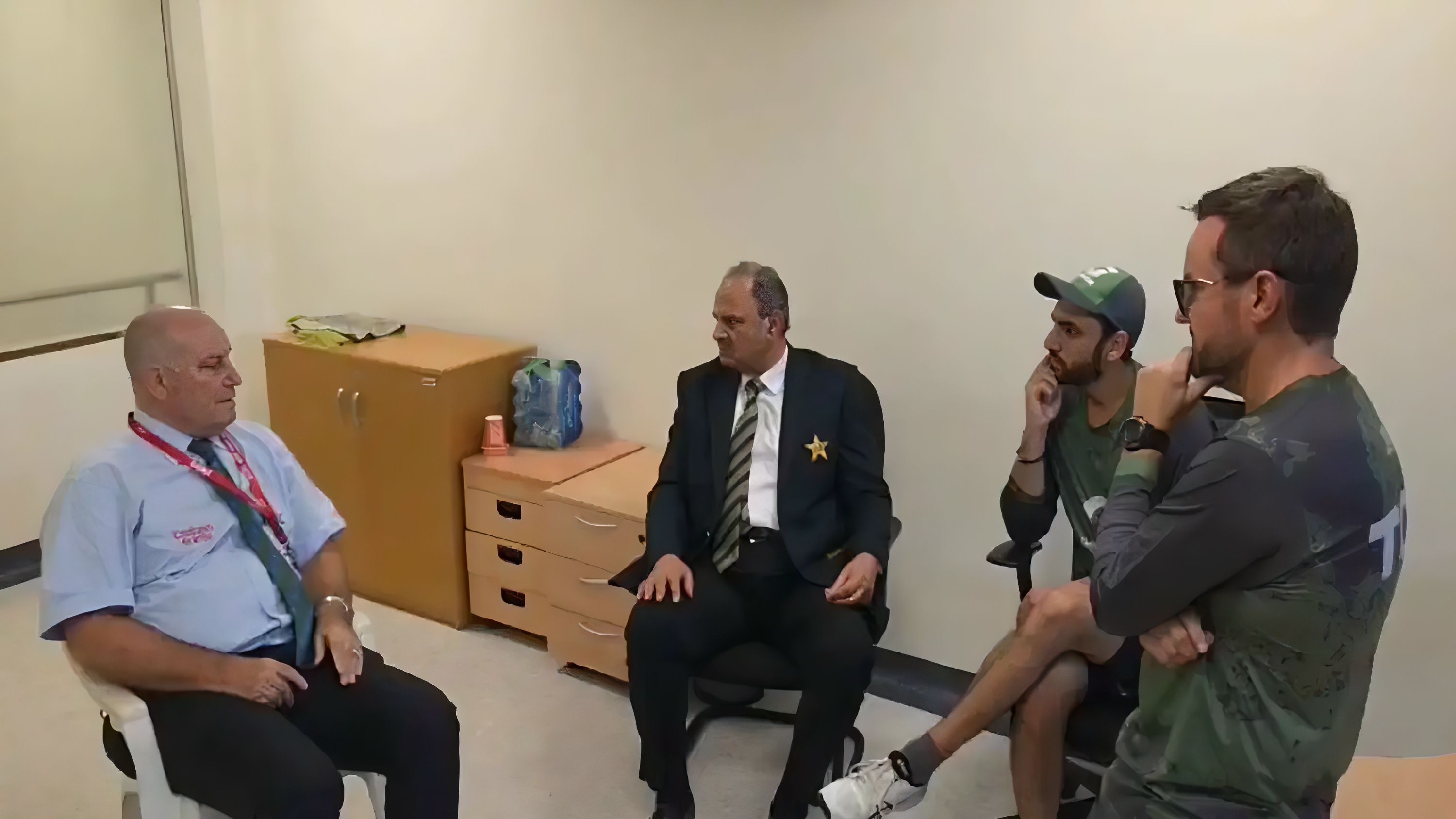
ICC’s Perspective on the Violations
For the ICC, the issue is not merely about a misunderstanding. It goes deeper into the PCB’s repeated defiance of tournament protocols. PMOA rules explicitly forbid mobile phones, cameras, and unauthorized personnel from entering restricted areas.
By allowing its media manager to record the meeting and later posting the video online, the PCB undermined the ICC’s governance structure.
One official pointed out:
“This demonstrated a complete disregard for the sanctity of the PMOA.”
Possible Sanctions Against PCB
The ICC is currently investigating the matter and is weighing its options for disciplinary action. Possible sanctions include:
-
Financial penalties imposed on the PCB.
-
Charges under the tournament’s code of conduct for misconduct.
-
Stricter monitoring of PCB officials for the remainder of the Asia Cup.
While no official decision has been announced yet, the ICC’s email makes it clear that the PCB could face serious consequences if found guilty.
The Broader Context: Politics, Cricket, and Public Sentiment
The incident highlights how cricket, especially in the subcontinent, often gets entangled with political tensions. India’s decision not to shake hands was interpreted by Pakistan as a political snub, while India framed it as a gesture of solidarity with terror victims.
The PCB’s strong reaction, including threats of withdrawal, shows how symbolic gestures in cricket can quickly escalate into diplomatic controversies.
Meanwhile, fans on both sides have taken to social media, debating whether the ICC has been too lenient or whether the PCB has overreacted.
What Lies Ahead for Pakistan Cricket?
The Asia Cup 2025 Pycroft controversy has snowballed into one of the biggest off-field sagas in recent cricket history. From handshake snubs to muted video leaks and accusations of bias, the drama has overshadowed Pakistan’s performance on the field.
As the ICC deliberates disciplinary action, the PCB finds itself under immense pressure to explain its conduct. The outcome could set a precedent for how the ICC handles disputes involving boards that openly challenge its authority.
For now, what is clear is that the Asia Cup has become more than just a cricket tournament — it is a stage where sportsmanship, politics, and governance collide. Whether the PCB faces fines, stricter sanctions, or escapes with a warning, the episode serves as a reminder that in international cricket, the action off the pitch can be as intense as the battles on it.
With inputs from agencies
Image Source: Multiple agencies
© Copyright 2025. All Rights Reserved. Powered by Vygr Media.

